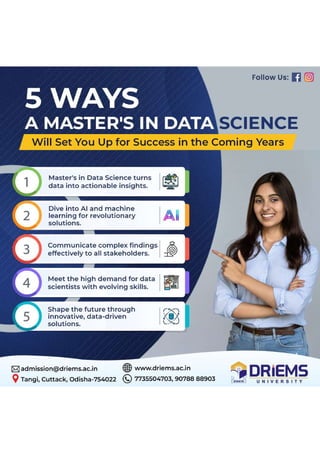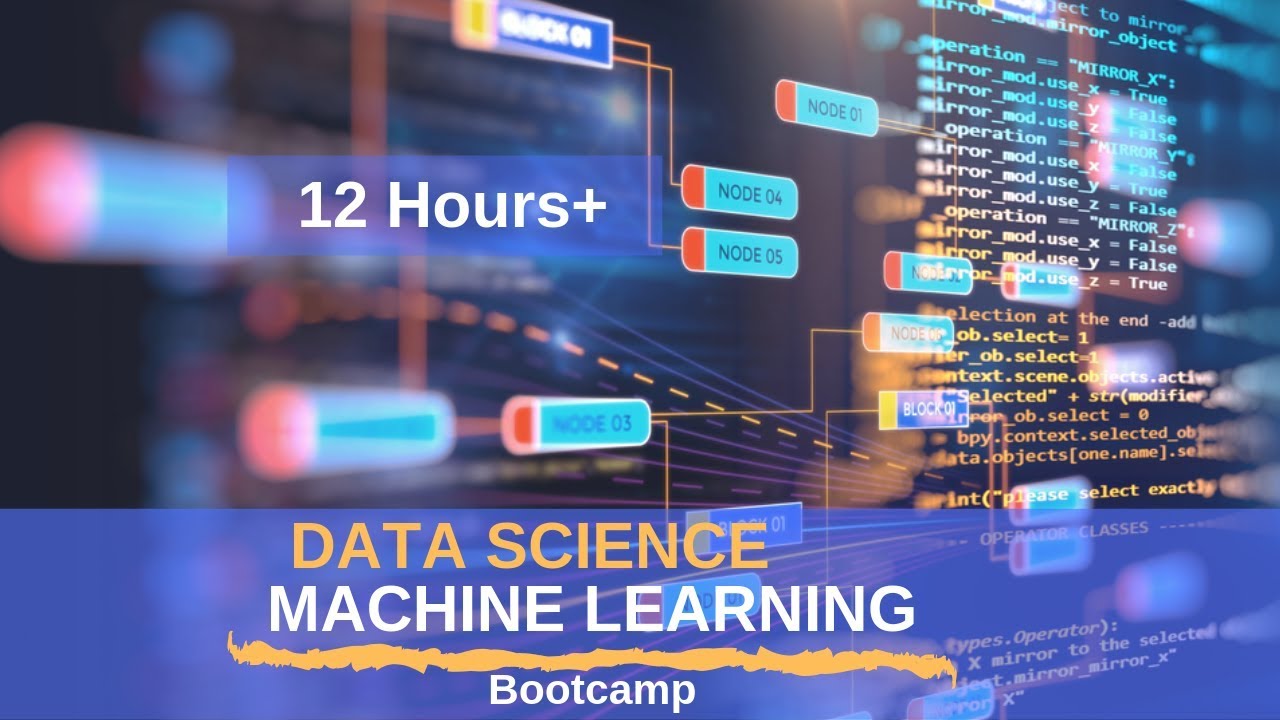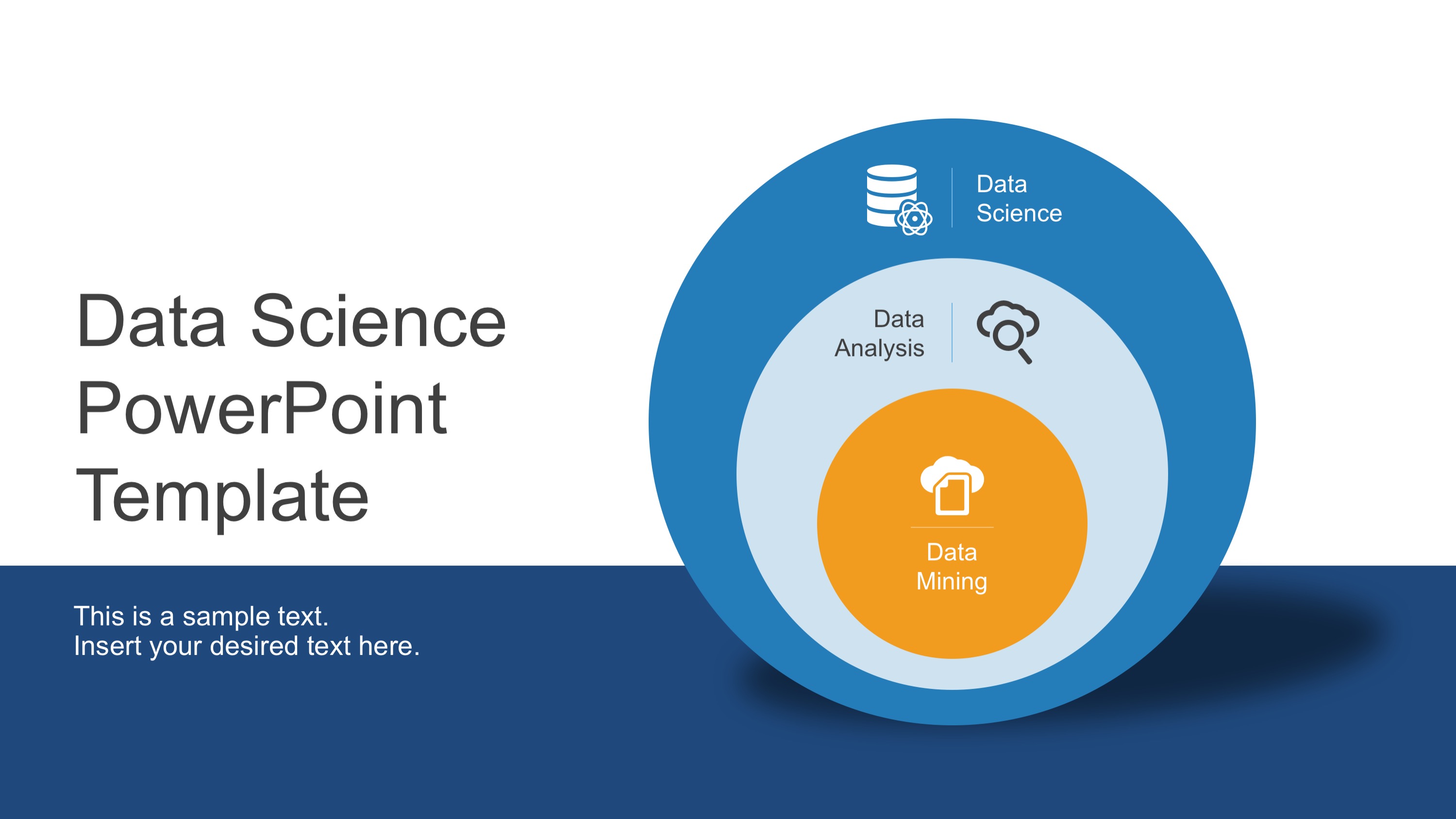7 Powerful Strategies To Master Data Science Today

In today's data-driven world, mastering data science is an invaluable skill. It empowers individuals and organizations to make informed decisions, gain a competitive edge, and drive innovation. By harnessing the power of data, you can unlock valuable insights and create meaningful solutions. In this blog post, we will explore seven powerful strategies to help you master data science and stay ahead of the curve.
1. Embrace a Holistic Approach

Data science is an interdisciplinary field that combines various disciplines, including statistics, mathematics, computer science, and domain-specific knowledge. To become a proficient data scientist, it's crucial to adopt a holistic approach. Here's how you can achieve this:
- Broaden Your Skill Set: Develop a well-rounded skill set by gaining expertise in multiple areas. Learn programming languages like Python or R, familiarize yourself with statistical concepts, and understand the fundamentals of machine learning.
- Explore Different Domains: Data science is applicable across various industries. Dive into different domains such as finance, healthcare, marketing, or environmental science. Understanding the specific challenges and goals of each domain will enhance your problem-solving abilities.
- Stay Updated: The field of data science is constantly evolving. Stay up-to-date with the latest advancements, tools, and techniques. Follow industry blogs, attend conferences, and engage with the data science community to keep your knowledge current.
2. Master the Fundamentals

Building a strong foundation is essential for mastering data science. Focus on understanding the core concepts and principles that underpin the field. Here are some key fundamentals to master:
- Statistics: Develop a solid grasp of statistical concepts such as probability, hypothesis testing, regression analysis, and data distribution. Statistics forms the backbone of data science and is crucial for interpreting and analyzing data.
- Data Wrangling: Learn how to clean, transform, and manipulate data. Data often arrives in messy and unstructured formats, so mastering data wrangling techniques is vital for preparing data for analysis.
- Data Visualization: Effective data visualization is a powerful tool for communicating insights. Familiarize yourself with various visualization techniques and tools like Matplotlib, Seaborn, or Tableau to create compelling visual representations of data.
3. Dive into Machine Learning

Machine learning is a key component of data science, enabling computers to learn and make predictions from data. Here's how you can dive into this exciting field:
- Supervised Learning: Start by understanding supervised learning algorithms, such as linear regression, logistic regression, and decision trees. These algorithms learn from labeled data to make predictions on new, unseen data.
- Unsupervised Learning: Explore unsupervised learning techniques like clustering and dimensionality reduction. These algorithms discover patterns and relationships in unlabeled data, helping to uncover hidden insights.
- Model Evaluation and Selection: Learn how to evaluate and select the best machine learning models for your data. Understand metrics like accuracy, precision, recall, and F1 score, and know when to use different evaluation techniques.
4. Leverage Open-Source Tools

The data science community has developed numerous open-source tools and libraries that can greatly enhance your productivity. Here are some popular ones to explore:
- Python Libraries: Python is a popular language for data science, offering a wide range of libraries. Familiarize yourself with libraries like NumPy, Pandas, Scikit-learn, and TensorFlow, which provide powerful tools for data manipulation, analysis, and machine learning.
- R Packages: If you prefer R, there are many packages available. Tidyverse, a collection of packages, is particularly useful for data manipulation and visualization. Additionally, explore packages like caret and mlr for machine learning tasks.
- Jupyter Notebooks: Jupyter Notebooks provide an interactive environment for data exploration, analysis, and visualization. They allow you to combine code, visualizations, and text, making it easier to share and collaborate on data science projects.
5. Practice with Real-World Data

Theory is important, but applying your knowledge to real-world data is crucial for mastering data science. Here's how you can gain practical experience:
- Kaggle Competitions: Kaggle, an online platform for data science competitions, offers a wealth of datasets and challenges. Participate in competitions to apply your skills, collaborate with other data scientists, and learn from the community.
- Open Data Sources: Explore open data sources such as government websites, research institutions, or data platforms like AWS Open Data or Google Cloud Public Datasets. Working with real-world data will help you understand the challenges and complexities of data science projects.
- Personal Projects: Identify problems or areas of interest that you want to explore. Collect and analyze data related to these topics, build models, and present your findings. Personal projects allow you to apply your skills in a meaningful way and gain practical experience.
6. Collaborate and Network

Data science is a collaborative field, and building a strong network can greatly benefit your growth. Here's how you can connect with others:
- Online Communities: Join online forums, discussion boards, and social media groups dedicated to data science. Platforms like Slack, Reddit, and LinkedIn have active data science communities where you can ask questions, share knowledge, and connect with like-minded individuals.
- Meetups and Conferences: Attend local meetups or conferences focused on data science. These events provide opportunities to meet experts, learn from their experiences, and expand your network. You can also present your work and gain valuable feedback.
- Open-Source Contributions: Contribute to open-source data science projects. This not only helps improve your skills but also allows you to collaborate with experienced developers and make a meaningful impact on the community.
7. Continuous Learning and Growth

Data science is a rapidly evolving field, and staying ahead requires continuous learning and adaptation. Here are some strategies to ensure your growth:
- Online Courses and Tutorials: Take advantage of the numerous online resources available. Platforms like Coursera, Udemy, and edX offer a wide range of data science courses taught by industry experts. These courses provide structured learning paths and allow you to learn at your own pace.
- Read Research Papers: Stay up-to-date with the latest research in data science by reading academic papers. Research papers provide insights into cutting-edge techniques and innovations. Start with well-known journals like Nature, Science, or Journal of Machine Learning Research, and explore relevant conferences like NeurIPS or ICML.
- Personal Development: Set personal goals and track your progress. Reflect on your strengths and weaknesses, and identify areas for improvement. Continuously seek feedback from peers and mentors to enhance your skills and knowledge.
Conclusion

Mastering data science is an exciting journey that requires a combination of technical skills, practical experience, and a continuous desire to learn. By embracing a holistic approach, mastering the fundamentals, diving into machine learning, leveraging open-source tools, practicing with real-world data, collaborating with others, and committing to continuous learning, you can become a proficient data scientist. Remember, data science is a dynamic field, and staying curious, adaptable, and open to new ideas will keep you at the forefront of this exciting discipline.
What programming languages are commonly used in data science?

+
Python and R are widely used in data science due to their extensive libraries and community support. Other languages like SQL and Scala are also valuable for data manipulation and processing.
How can I stay updated with the latest advancements in data science?

+
Follow industry blogs, attend conferences and webinars, join online communities, and subscribe to data science newsletters. These resources will keep you informed about the latest trends and innovations.
What are some common challenges in data science projects?

+
Data quality issues, handling missing or incomplete data, feature engineering, model selection, and interpreting results are some common challenges faced in data science projects. Understanding these challenges and developing strategies to address them is crucial for success.


